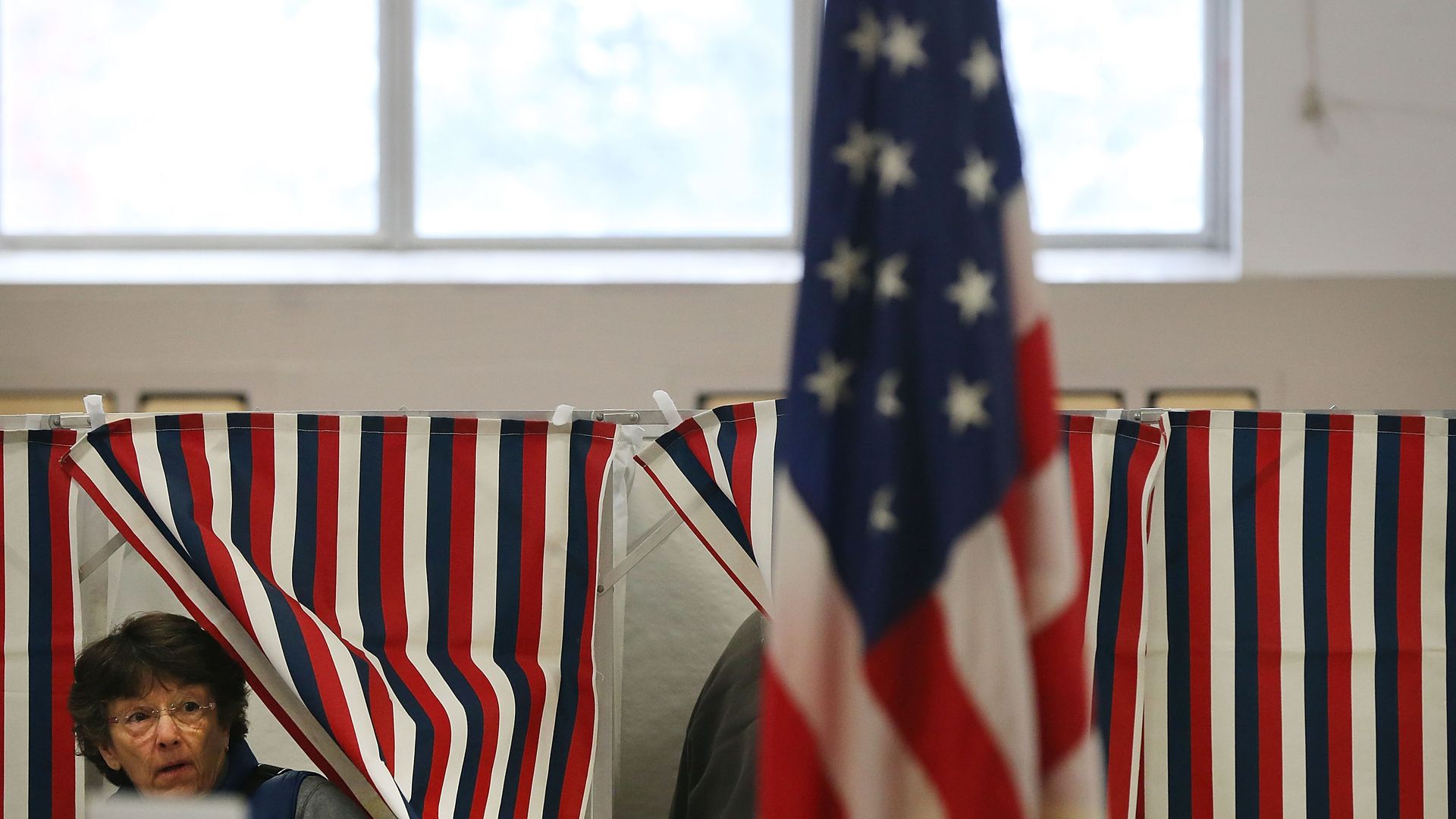States need to fix "outdated" voting systems, Senators say
Add Axios as your preferred source to
see more of our stories on Google.

Poll booth in New Hampshire in 2016. Photo: Spencer Platt / Getty Images
The Senate Intel Committee released a set of recommendations Tuesday that concludes states should "rapidly replace outdated and vulnerable voting systems" and that "any machine purchased going forward should have a voter-verified paper trail and no WiFi capability."
Why it matters: States have already begun voting in primaries this year, but not all states have a paper trail of votes, and without them, election officials cannot guarantee election results reflect the way people cast their ballots. (There are five states that lack a paper trail of votes, and nine that sometimes lack them.) And with intel leaders assuring lawmakers that Russia is continuing to meddle in U.S. elections, this lack of verifiability can sow doubt in swing state results or particularly close elections.
Why release the recommendations? The committee has been studying evidence of Russian meddling in the U.S. election infrastructure in 2016 and is releasing its recommendations to try and help shore up security for the 2018 election cycle. The committee makes clear it is not trying to step on any toes and that the responsibility of running elections will still fall to the states.
- The problem, according to Senator James Lankford is that "some states...have chosen to not have auditable elections." The goal is to incentivize them to change that, per Lankford.
- About Russia... "If you've got intent, and you've got capability, then you've got a threat," Chairman Richard Burr said. "Russia's not the only one that has capability, and probably not the only ones with intent."
More of the committee's recommendations:
- DHS expedites the security clearance process for state election officials to gain access to threat and breach information and cleans up its communication with election officials and states. Sen. Mark Warner lamented that it took DHS nine months to alert states they had been scanned in 2016.
- States secure their voter databases with "two-factor authentication for those logging into voter databases."
- Congress allocates funds for states to handle election security upgrades. That includes their recommendation that states fund audits of election results to verify them.
- The government sends a signal to foreign adversaries that if they attack U.S. elections that the U.S. would view it as a "hostile act" and that "we will respond accordingly."
- DHS educates vendors of election systems about the vulnerabilities in their machines and supply chains.
